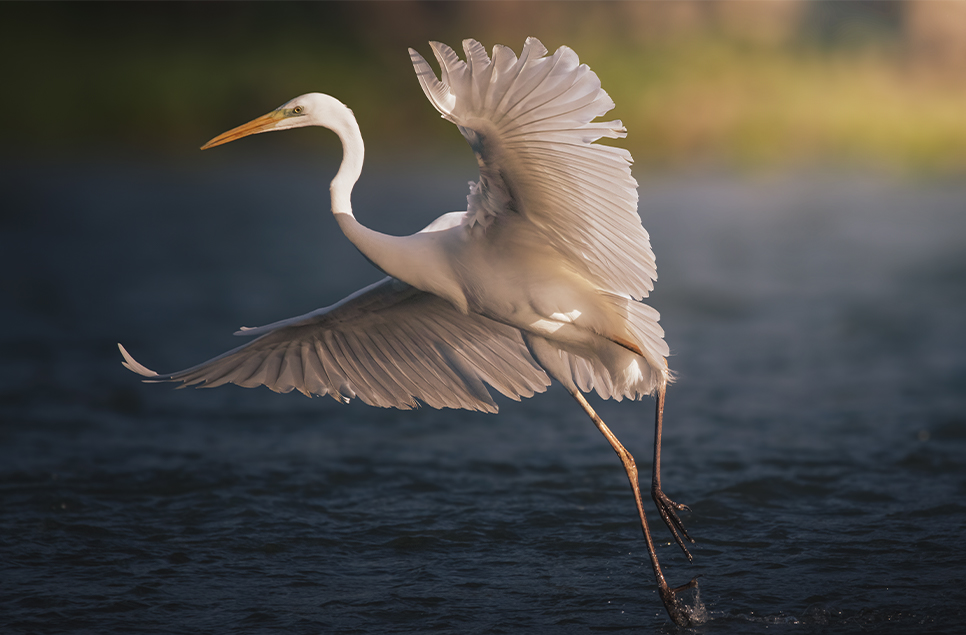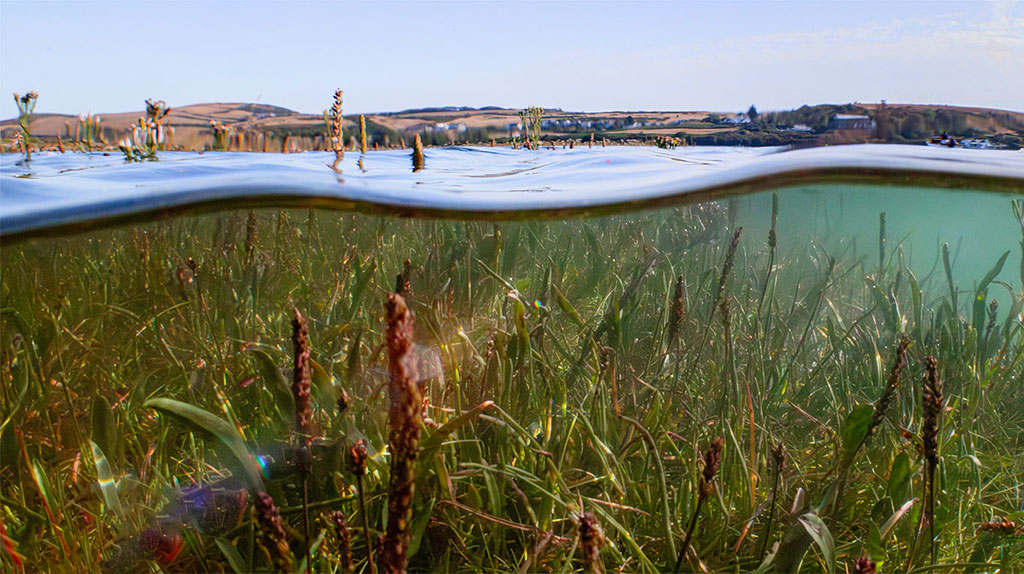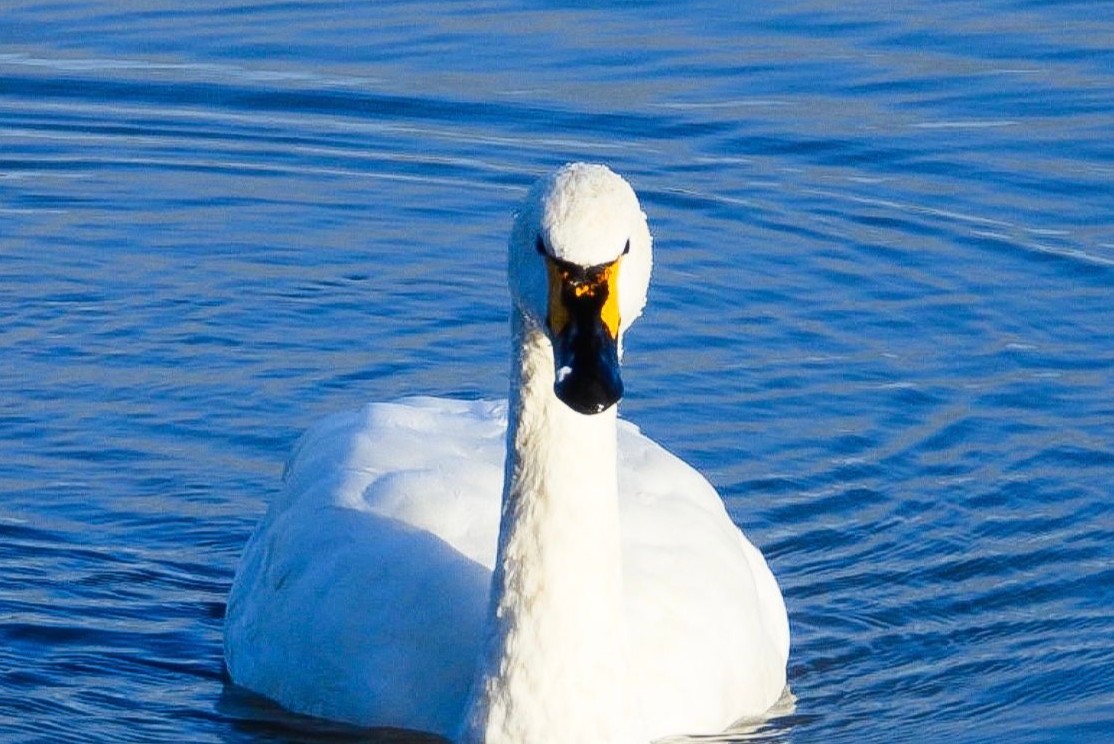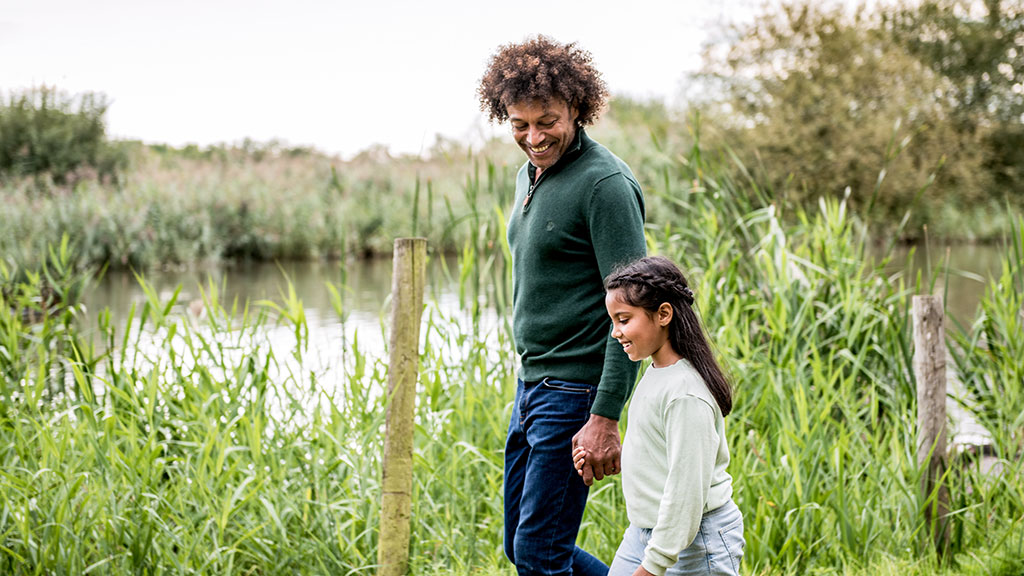WWT responds to government proposals that could imperil wetlands
Proposed changes to the planning system, land management support and environmental legislation.

What does the UK Government propose and what does this mean for wetlands?
Last week the UK Government made a number of announcements as part of its plans to drive economic growth that could profoundly affect the UK’s nationally and internationally important wetlands, such as the Broads, the Northumbria Coast, and the Solent. These include:
- Reforming habitats and species regulation, including Habitats Regulations. Wrongly seen as a barrier to socio-economic activity, the Habitat Regulations provide a key test for sustainable development. Reforming or removing them could weaken protections for wetlands.
- Introducing Investment Zones. Such areas would have minimised planning requirements and ‘radically streamlined’ planning processes, potentially reducing or eliminating protections for wetlands within these zones.
- Reviewing Environmental Land Management Schemes. This casts doubt upon the UK’s new means of supporting land managers for providing public goods, potentially removing a vital means of both protecting and restoring wetlands.
- Introducing a ‘sunset clause’ on the transfer of EU legislation into UK law. This includes key environmental principles (e.g. polluter pays, precautionary approach), however leaving inadequate time to scrutinise and amend legislation would weaken protections for wetlands.
How would this affect the UK’s existing commitments?
If enacted, the Government’s proposals will profoundly affect the ability of the UK to meet some of its most critical commitments. These include:
- Delivering on its landmark 25 Year Environment Plan, committing the UK to improving the environment, within a generation, and leaving it in a better state than we found it. This includes creating a 500,000ha nature recovery network of wildlife-rich places.
- Fulfilling the Leaders Pledge for Nature, a global agreement signed by the EU and 93 countries from all regions. This commits to reversing biodiversity loss by 2030, with the UK aiming to deliver it via a further pledge to protect 30% of land in the UK for nature by 2030.
- Meeting its legal target to halt species loss. Under the Environment Act 2021, the UK has committed to halt the decline in species by 2030 and then bend the curve to increase species abundance by 10% by 2042.
- Fulfilling commitments under The Ramsar Conventioni. This treaty requires Contracting Parties to designate and protect internationally significant wetlands. The UK delivers this via the extension of protections afforded by the Habitats Regulations.
- Meeting commitments under The Bern Conventionii. The UK meet requirements to protect habitats and species through use of the Habitats Regulations and the sites they protect; removing them without equivalent protection this would breach these commitments.
- Delivering commitments under the African-Eurasian Waterbird Agreementiii. The UK supports coordinate international efforts to protect migratory waterbirds and their habitats. The Habitats Regulations play a key role in meeting these commitments.
Why does the UK economy need wetlands?
Wetlands are critical to our future, and across the UK, communities depend upon wetlands for their prosperity and wellbeing. The ecosystem services wetlands provide include:
- Water supply: worth £4 bn a year in the UK. The recent droughts have exposed the need to retain water in the land by protecting and restoring wetlands.iv
- Flood prevention: saltmarsh alone protects £1.79bn in assets from flooding every year.v
- Carbon sequestration: coastal habitats store carbon worth up to £4bn every year.vi
- Health and wellbeing: visits to freshwater habitats are worth £739m a year in improved health and wellbeing.vii
As numerous studies have shown, protecting our environment and protecting our economy are indivisible. However, HM Treasury recognises that we are drawing down on the ‘natural capital’ (the stocks of goods nature provides) we depend upon faster than it can naturally replenish. Today, the UK ranks among one of most nature-depleted countries on Earth, and this is partly driven by wetland loss. England alone has lost around 90% of its freshwater wetlands over the last 500 years, and many of the wetlands that remain face a range of pressures.
Given that so many species live and breed in wetlands, or use them as vital stopping off points on migration, protecting and restoring wetlands is one of the very best ways to restore our lost natural capital. This was recognised by the Natural Capital Committee, who made the investment case for the creation of 100,000 hectares of wetlands, helping to deliver the goals of the 25 Year Environment Plan and with an attractive return on investment of up to 9:1.
Building a stronger, sustainable country
It is critical the UK Government fulfils its existing commitments as mandated by the British People, maintaining protections for wetlands and delivering Environmental Land Management Schemes. Anything less would be a catastrophe for wetlands, nature and communities. Any reforms should focus on better implementing rather than seeking to change existing legislation. e.g. funding agencies. Moreover, we should not rest here. To address the biodiversity crisis and meet their commitments the UK Government needs to go further and faster in restoring ecosystems. This must include embracing WWT’s ‘Blue Recovery’ proposals to create 100,000 ha of multi-benefit wetlands.
Our Blue Recovery proposals will help Government and businesses to meet their commitments, address the climate, nature and wellbeing crises the country faces and bring hope to people across society. Economic growth needs nature to be in recovery at the very least, without this any economic growth plans will be on shaky foundations that will fail future generations.
WWT stands ready to work with the Government to establish the partnerships and secure the policy framework to make nature’s recovery a reality alongside economic growth plans. WWT calls on the Government to stand by its nature commitments and, crucially, to ensure they are delivered.
Further information
For further information please contact supporter@wwt.org.uk
Take action
If you’d like to show government your support for wetlands please sign our Wetlands Can! pledge:
Sign the pledgeReferences:
i The Ramsar Convention on Wetlands of International Importance is the intergovernmental treaty that provides the framework for the conservation and wise use of wetlands and their resources.
ii The Bern Convention is a binding international legal instrument in the field of nature conservation and requires the UK to protect certain habitats and species. Setting-up the Emerald Network (a network of sites to ensure the long-term survival of the species and habitats of the Bern Convention requiring specific protection measures) at national level is considered as one of the main tools for the Contracting Parties to comply with their obligations under the Bern Convention. These obligations are met via the Habitats Regulations and the sites they protect; if they were to be removed without equivalent protection this would breach Bern Convention commitments.
iii Developed under the framework of the Convention on Migratory Species and administered by the United Nations Environment Programme (UNEP), the African-Eurasian Waterbird Agreement (AEWA) brings together countries and the wider international conservation community in an effort to establish coordinated conservation and management of migratory waterbirds and their habitats throughout their entire migratory range, including the UK.
iv https://www.ons.gov.uk/economy/environmentalaccounts/bulletins/uknaturalcapitalaccounts/2021



